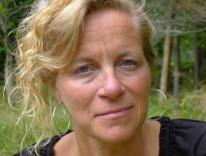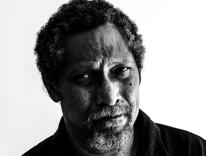The first series of Paris Review interviews with famous writers (Writers at Work, Viking) had a good deal of curiosity value. It was a bit like seeing celebrities in the flesh and finding that they look just like their photographs: Faulkner talked just like Faulkner; Forster could almost have been Forster. I suppose the truth is that one only half-believes in public figures: I remember my own amazement a few years ago upon actually seeing a movie star (Jimmy Stewart it was): I suppose I had thought of him as some kind of disembodied hoax, like Donald Duck or Ishkabbible.
But one is soon sated with these wonders, and one volume of Writers at Work was surely enough from this point of view. With the second series, unreality sets in again, worse than ever. The interviews have become as stylized as those Hollywood profiles in which one learns that Miss So-and-so likes to cook out of doors and that she re-reads the classics every year; we almost expect to hear that Aldous Huxley prefers to write in an extra-large bed with all the windows open.
Perhaps the real value of this second volume is to underline once and for all the worthlessness of this kind of information. At first it looked as if it might be important to know that Thornton Wilder sharpened twenty pencils before composing. (Or was it Hemingway who sharpened the pencils? Even so, one forgets whether it was Cary Grant or Humphrey Bogart who wore pyjamas.) Now we know, what we should have known sooner, that these details serve mainly to mythologize their subjects and to make them less rather than more real. The news magazines have been on to this trick for some time: nothing obscures a personality so effectively as a barrage of trivial facts.
But mythology also has its interests, and several of the interviews—especially those in which the authors actually seem to be mythologizing themselves—exert a considerable sub-literary spell. The creative rudeness of Perelman and the archness of Frost, the systematic foolishness of Henry Miller and the remains of Ezra Pound's funny-money theories, have a sort of moonshot grandeur to them, and make much better reading than, say, the foibles of Eisenhower's cabinet (recently described in Emmet John Hughes' sleazy memoir, The Ordeal of Power—even the title of which rattles with empty portent. )
Writers are forever constructing mythic alter egos for themselves. The intensity of imagination that combusts into living fiction sometimes secretes these curious by-products: outrageous and irresistible roles and images for the author himself. So you get Henry James, the English squire; Stendhal, the master of hearts, courting Napoleonically, but unsuccessfully, in his smart yellow gloves; Thomas Mann, the twentieth-century Goethe (a construct based on a construct). Scott Fitzgerald imitating socially up and George Orwell imitating down—all, like Thomas Mann's Aschenbach, painting their faces to an impossible beauty: pathetic but, as Mann says, not without glory.
And, of course, you get Ernest Hemingway, who offers surely the most haunting interview in this second series. Hemingway by then had been completely consumed by his alter ego (compare the T. S. Eliot interview for this: Eliot, who seems to have pruned away every mannerism scrupulously, as if personality were some sort of strangling vine; as if some form of death to self were necessary to artistic survival).
The first thing you notice about the Hemingway dialogue is his mania for challenging everything that has ever been said about him. Let Archibald MacLeish praise him (praise him, mind you) for something, and he can only say, no, Archie got that wrong. Let the interviewer quote Hemingway's own words, and Hemingway will either deny the whole thing or say he was concussed at the time or that he meant something quite different—it is a long badgering exercise to stay on top, and reminds one of Morley Callaghan's comment, after talking to Hemingway in the twenties, that Ernest had to be champion at everything.
You would suppose that such a conversation would be insufferable, that the interviewer would want to go a few rounds with Papa to get his own back (the interviewer is George Plimpton who once went an inning with Willie Mays). But the curious thing is that Plimpton actually goes out of his way to praise the subject's affability and charm. There must have been something in the delivery of these itchy, pugnacious remarks that took the edge off them and gave them an almost friendly effect. Like a big dog rough-housing.
Certainly, Hemingway had more friends than his quoted sayings would account for. Upon re-reading the interview, one realizes even here that he had a nice, fine, clean feeling for the rhythm of combativeness and conciliation that so much masculine friendship depends on.
Scavenging for clues, one realizes that masculine friendship had, in a way, always been his great subject. The theme of violence and death was partly a blind for this: violence and death conduce to a more intense comradeship; they connect men in a way that would be impossible and embarrassing in peaceful life. But where a war-glorifier like Belloc celebrates friendship brassily or sentimentally, Hemingway does it with silence and the talismanic sentence.
In the early stories anyway, the key to comradeship was to be physically skillful and to keep quiet: a fine discovery for a shy, graceful man to make. The outsider is always the talker, the person who says the inappropriate thing or makes the wrong comment on the action. ("Won't you please, please, please, please, please stop talking.")
Hemingway's laconic man of action was as pathetic and noble as any writer's alter ego. Unfortunately, the real Hemingway liked to talk. As he got older, the personality thrust itself at his mouth, and you get a curious kind of self-denying garrulity. He still had the key: terseness and understatement. But since he liked to talk, he began producing whole streams of terse, understated sentences. In the Plimpton interview, every answer sounds reluctant, as if there was something epicene about all this chatter—but there is an endless flood of these reluctant answers; every sentence sounds like the only thing he's going to say that day—but you can't ever count on it.
The alter ego, the ideal self, can become in the end a monster, the self the writer has to die to if he wants to keep going. A style perfectly suited to Gary Cooper became a grotesque imposition on an articulate man; and for a writer of Hemingway's extraordinary stature to wish to be taken seriously as a boxer is certainly as touching as Aschenbach painting his face and pursuing his crazy dream all over Venice.
I suppose we would prefer our authors to be as superior to their material as our critics are, but involvement to the point of foolishness, usually quite humorless involvement, is the price they pay for having the material at all; detachment writes very few novels.
If Fitzgerald hadn't envied people who were worth about one tenth of himself, hadn't possessed the extraordinary imagination to see glamor in the rich and stupid, we would never have had Gatsby. Hemingway's folly is in the same way inseparable from his art, even to the point where it grew up and choked it. Perhaps there is a similar story to be found in each of the interviews.
Please email comments to [email protected] and join the conversation on our Facebook page.
Previous Story
The Mood of Conservatism
Next Story
The Race Race

